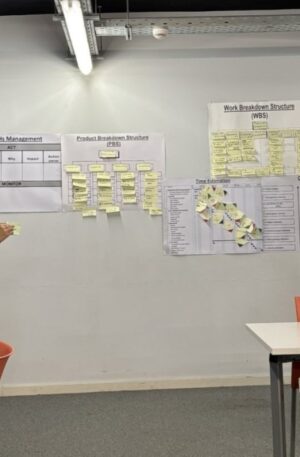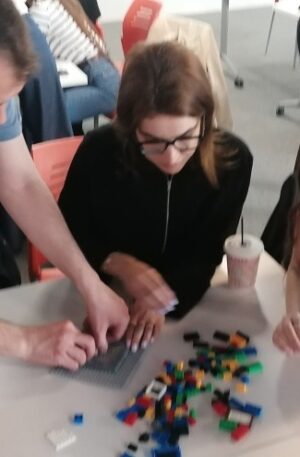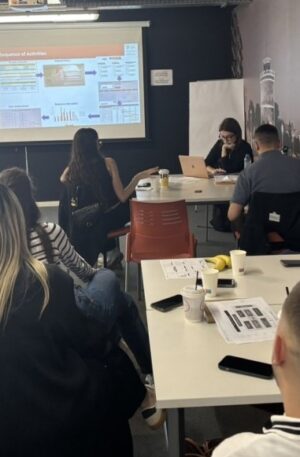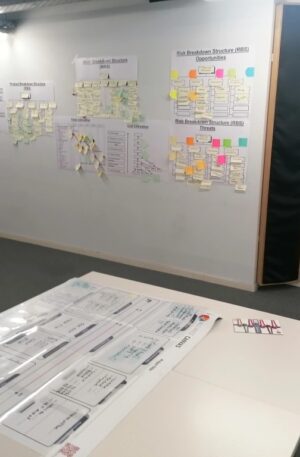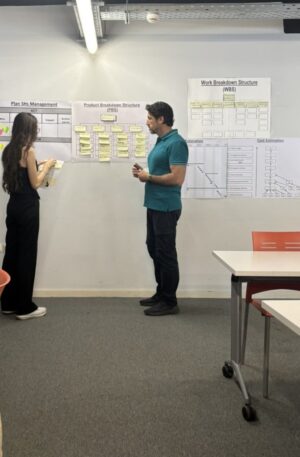
Project Management Methodology (PM²) of European Union was introduced as a full semester module and was addressed to 14 MSc students of CITY College from 5 countries (Kosovo, Serbia, Albania, Greece and North Macedonia) from 09 to 11 May 2025. The aim of the PM² workshop is not only knowledge but all MSc Students to be certified with the PM² Advanced certification through the test center of PM² Alliance.


Bringing PM² to Life: A Hands-On Workshop Experience
Every great journey begins with a spark—and at our latest PM² workshop, that spark came in the form of a playful yet powerful Training Kick Booster Lego Game. Designed to highlight the importance of communication, team coordination, and the value of applying a methodology, this opening activity set the tone for an engaging and practical learning experience.
The core of the workshop was built around a realistic project scenario, carefully crafted to familiarize participants with every stage of the PM² methodology. The journey began with a thorough review and analysis of the Project Charter, laying the foundation for all project-related decisions.
Participants were then divided into teams and challenged to identify the stakeholders of the project. This dynamic exercise not only encouraged collaboration but also allowed participants to grasp the importance of stakeholder mapping in ensuring project success.
Next came the strategic composition of the Product Breakdown Structure (PBS), followed by the creation of the Work Breakdown Structure (WBS). Teams took a deep dive into planning as they constructed the Project Triangle—balancing Schedule, Scope, and Budget. Using official PM² templates and tools, participants engaged in thoughtful discussions and debates, working together to accurately classify and define each task and requirement based on client needs.
The workshop continued with a detailed session on Project Planning, emphasizing the importance of tailoring project plans to fit specific project contexts. Participants explored how to adapt planning tools effectively, ensuring that the plans remained both practical and actionable.
In the final phase of the workshop, focus shifted to Risk Management—a vital part of any project. Teams identified potential risks, conducted analyses, proposed response strategies, and examined methods to monitor and control risks throughout the execution phase.
The outcome? Smiling faces, enthusiastic feedback, and a collection of fully completed PM² templates that demonstrated not only comprehension but application of the methodology. The atmosphere was charged with energy, teamwork, and a genuine sense of accomplishment.
This workshop didn’t just teach PM²—it brought it to life. Through hands-on activities, group challenges, and scenario-based learning, participants walked away with real, practical insights into managing projects the PM² way—proving once again that learning can be structured, impactful, and joyful.
